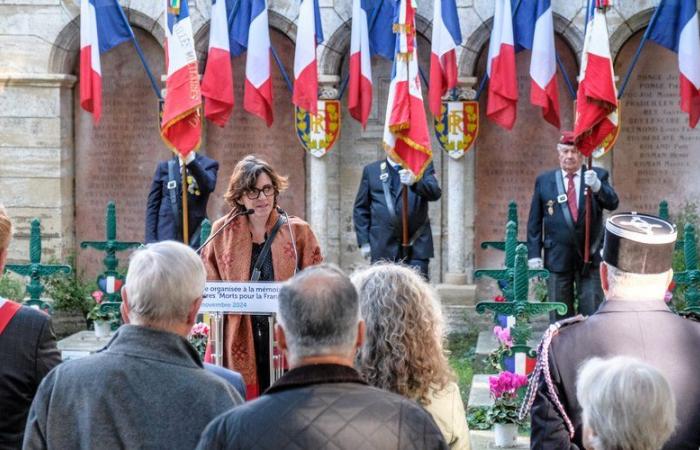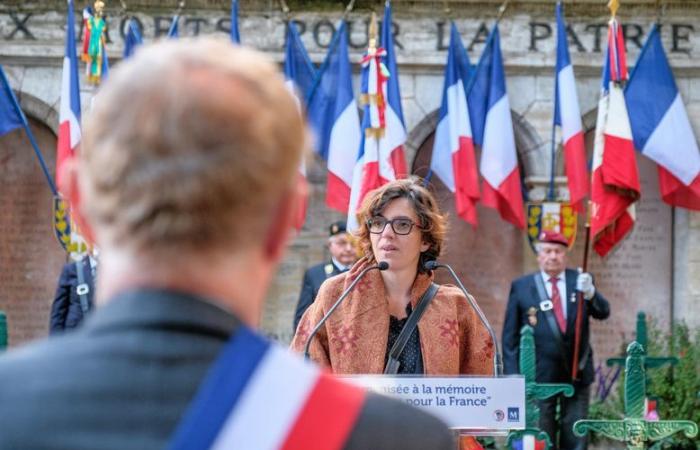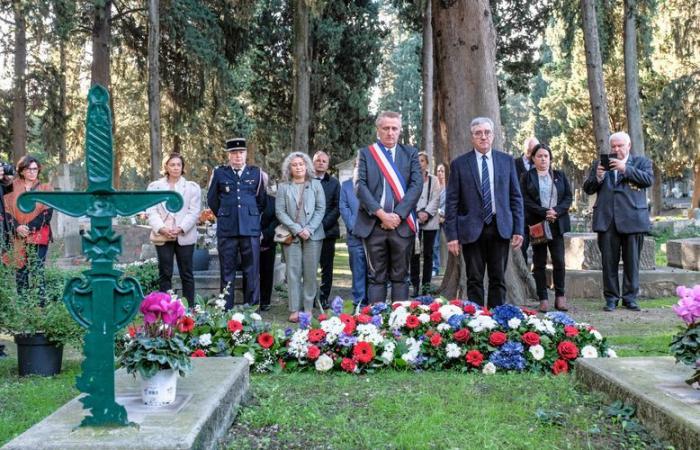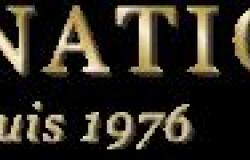This Saturday, November 2, the small Protestant cemetery in Montpellier hosted a first tribute to the soldiers who died for their country. Before the one organized in Saint-Lazare just after.
On this Day of the Dead, this Saturday, November 2, the traditional ceremonies to pay tribute to the soldiers who died for France took place in Montpellier.
Before the major commemoration organized at the Saint-Lazare cemetery and its 920 tombs and 5 military squares, a more modest ceremony initially took place at the Protestant cemetery and its 12 tombs.
In this more restricted place, the commemoration is no less solemn. The intimate side almost makes it more intense. Le Souvenir français, under the aegis of its president Claude Carlier, ensures its smooth running.
Midi Libre – ITALIAN GIACOMO
“Paying homage to those who died for France is always essential. It is also enshrined in the law,” specifies Claude Carlier. “Wounded soldiers were treated in Montpellier given the city's reputation in medical matters, this explains the number of soldiers buried in our cemeteries.”
A message of peace
Midi Libre – GIACOMO ITALIANO
Pastor Ingrid Prat gave a poignant speech delivering a message of peace before the wreaths were laid in front of the monument dedicated to the “Died for the Fatherland”. “Eternity begins when death comes“, she declaimed. “Behind its 99 deaths, behind each name there is a story”she punctuates to underline the sacrifice of these men. “Peace is very fragile, but it is in the hands of each of us.”
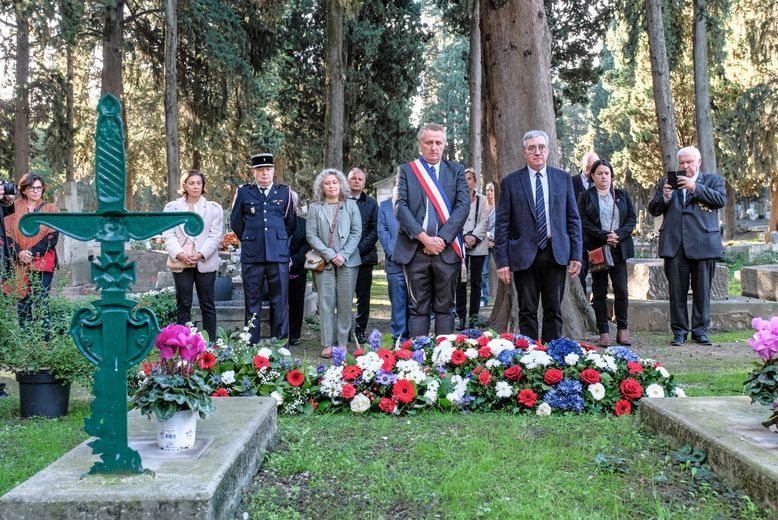
Midi Libre – ITALIAN GIACOMO
The Ringing to the dead et The Marseillaise rang out in the cemetery to conclude this dignified ceremony before all the delegations went to Saint-Lazare, for the second part of this tribute. To maintain again and again the duty of memory essential to history to prevent certain aspects from recurring.
Missions throughout the year for French Remembrance
Even if this day is a major event for the association founded in 1887, the mission of French Remembrance is not reduced solely to the organization of this ceremony. Alain Cadilhac, treasurer of the Montpellier committee, is proof of this. Throughout the year, he searches the graves for soldiers who died during a conflict so that each one can be duly listed. He therefore carries out small investigations, sometimes just starting from a name, a date… a real painstaking task. “Some are buried in family vaults. They must be identified.”
An increasingly frequent task in the face of requested research thanks to the resurgence of interest in genealogy“Sometimes families only have an oral transcription transmitted by grandparents. They do not have a written record. We strive to provide them with answers.”
France

